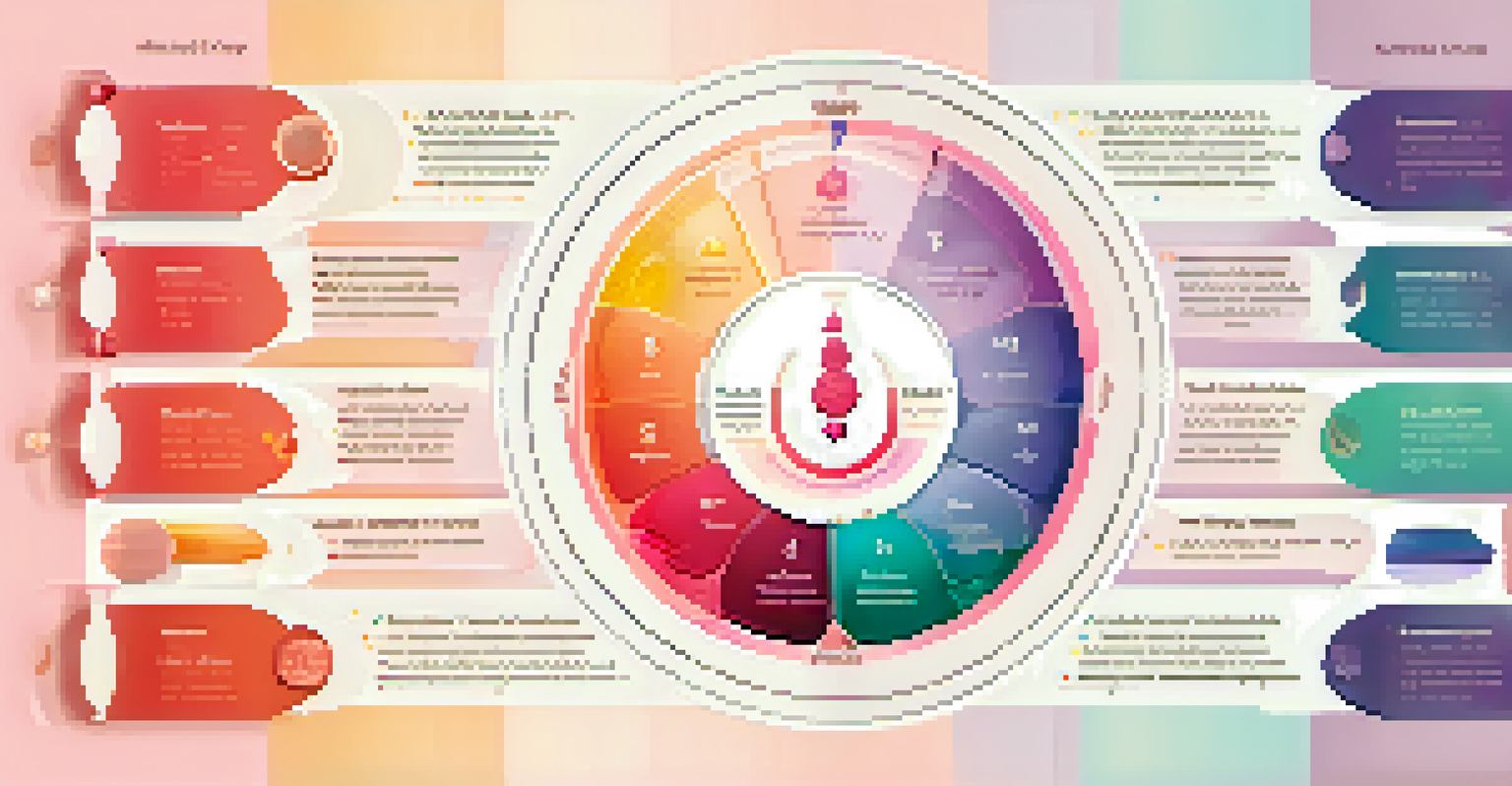Understanding Ovulation: Key to Boosting Female Fertility

What is Ovulation and Why is it Important?
Ovulation is a crucial part of the menstrual cycle where an ovary releases an egg. This event usually occurs around the middle of the cycle and is essential for conception. Without ovulation, there can be no fertilization, making it a key factor in female fertility.
Knowing how to track your ovulation can empower you to take control of your fertility journey.
Understanding ovulation helps women identify their most fertile days, which can increase the chances of getting pregnant. It's like knowing the best time to plant seeds in a garden; timing can make all the difference. Recognizing these signs can empower women on their fertility journey.
In addition to fertility, ovulation can also affect a woman’s overall health. Hormonal changes during this time can influence mood, energy levels, and even skin health. Therefore, being aware of one’s ovulation cycle is beneficial beyond just the prospect of pregnancy.
The Menstrual Cycle: A Quick Overview
The menstrual cycle is typically about 28 days, although it can range from 21 to 35 days for some women. It consists of several phases: the menstrual phase, follicular phase, ovulation, and luteal phase. Each phase plays a role in preparing the body for potential pregnancy.

During the follicular phase, the body prepares an egg for release, and estrogen levels rise. This phase is crucial as it sets the stage for ovulation. Think of it as a rehearsal before the big event; the body gears up for the main act of releasing an egg.
Understanding Ovulation's Role
Ovulation is essential for conception and understanding it empowers women to track their fertility effectively.
After ovulation, the luteal phase begins, where the body prepares for the possibility of pregnancy. If the egg isn’t fertilized, hormone levels drop, leading to menstruation. Understanding these phases can help in tracking ovulation and enhancing fertility awareness.
Signs of Ovulation: How to Recognize Them
Recognizing the signs of ovulation can greatly assist in family planning. Common indicators include changes in cervical mucus, a slight increase in basal body temperature, and ovulation pain for some women. These signs act like nature’s clues, guiding women to their fertile window.
Every woman’s journey to motherhood is unique; understanding your body is the first step.
For instance, cervical mucus becomes clearer and more stretchy around ovulation, resembling raw egg whites. Tracking these changes can help women pinpoint their most fertile days. It’s like having a personal fertility calendar that adjusts to your body’s rhythm.
Additionally, some women might notice an increase in libido or breast tenderness during ovulation. Paying attention to these signals can empower women to take charge of their reproductive health and enhance their chances of conception.
Ovulation Tracking Methods: Tools for Success
There are various methods to track ovulation, each with its own advantages. Calendar tracking, basal body temperature monitoring, and ovulation predictor kits are popular options. Using a combination of these methods can provide a clearer picture of one’s ovulation cycle.
For instance, calendar tracking involves marking the first day of your period and estimating when ovulation might occur based on cycle length. Basal body temperature tracking involves taking your temperature each morning to detect a slight rise after ovulation. It’s like piecing together a puzzle to reveal your fertility pattern.
Recognizing Ovulation Signs
Identifying signs of ovulation, like changes in cervical mucus and temperature, helps women determine their most fertile days.
Ovulation predictor kits test hormone levels in urine to predict ovulation. These kits can be particularly helpful for women with irregular cycles. By leveraging these tools, women can better understand their bodies and optimize their chances of conceiving.
Lifestyle Factors That Influence Ovulation
Several lifestyle factors can impact ovulation and overall fertility. Stress, diet, exercise, and sleep patterns play significant roles. For example, high-stress levels can disrupt hormone balance, affecting ovulation, similar to how a storm can disrupt a calm sea.
Eating a balanced diet rich in nutrients can enhance reproductive health. Foods high in antioxidants, healthy fats, and vitamins can support hormonal balance. Think of it as fueling a car; the right fuel ensures smooth performance.
Regular exercise can also help regulate menstrual cycles, although excessive exercise might have the opposite effect. Maintaining a healthy weight is crucial, as both underweight and overweight conditions can affect ovulation. Being mindful of these factors can create a supportive environment for fertility.
When to Seek Help: Understanding Fertility Issues
If you’ve been actively trying to conceive for over a year without success, it may be time to seek professional guidance. Fertility issues can stem from various factors, including hormonal imbalances, structural issues, or underlying health conditions. Recognizing when to ask for help is a vital step in your fertility journey.
A healthcare provider can conduct tests to identify potential issues affecting ovulation. These tests may include blood work, ultrasounds, or assessments of the reproductive organs. It’s like having a mechanic check your car to ensure everything is running smoothly.
Lifestyle Impacts on Fertility
Lifestyle factors such as stress and diet significantly influence ovulation and overall reproductive health.
Early intervention can increase the chances of successful conception. It’s essential to remember that fertility journeys can vary widely, and seeking support can provide valuable insights and options tailored to individual needs.
Embracing the Journey: Staying Positive and Informed
Embarking on the journey to conceive can be filled with emotions, from excitement to frustration. Staying positive and informed can empower women and couples during this time. Engaging with supportive communities or resources can provide comfort and understanding.
It’s essential to remember that each person’s journey is unique, and timelines can vary significantly. Practicing patience and self-care is crucial, as stress can impact fertility. Think of it like tending to a garden; nurturing it with care often leads to the best blooms.

Staying informed about ovulation and fertility can help couples feel more in control of their journey. Whether through reading, attending workshops, or connecting with others, knowledge is a powerful tool in navigating the path to parenthood.